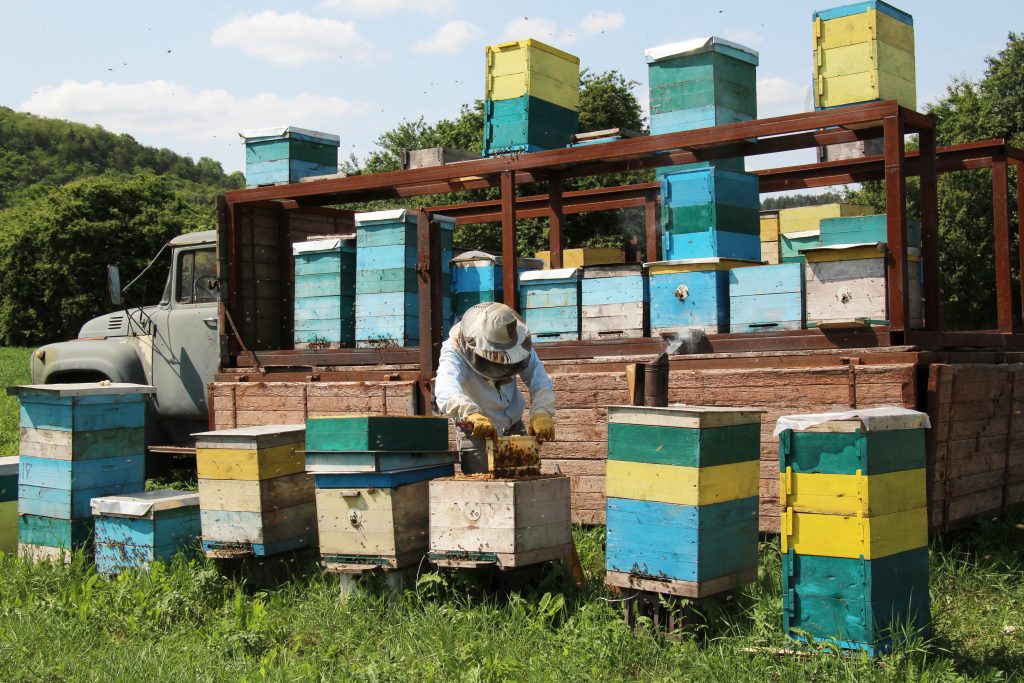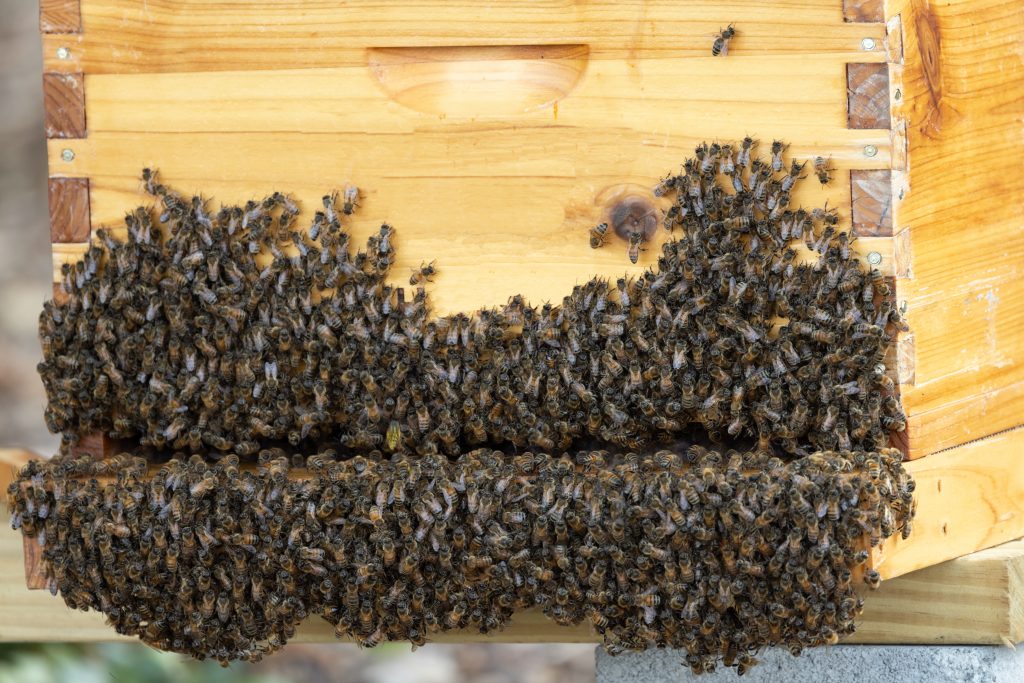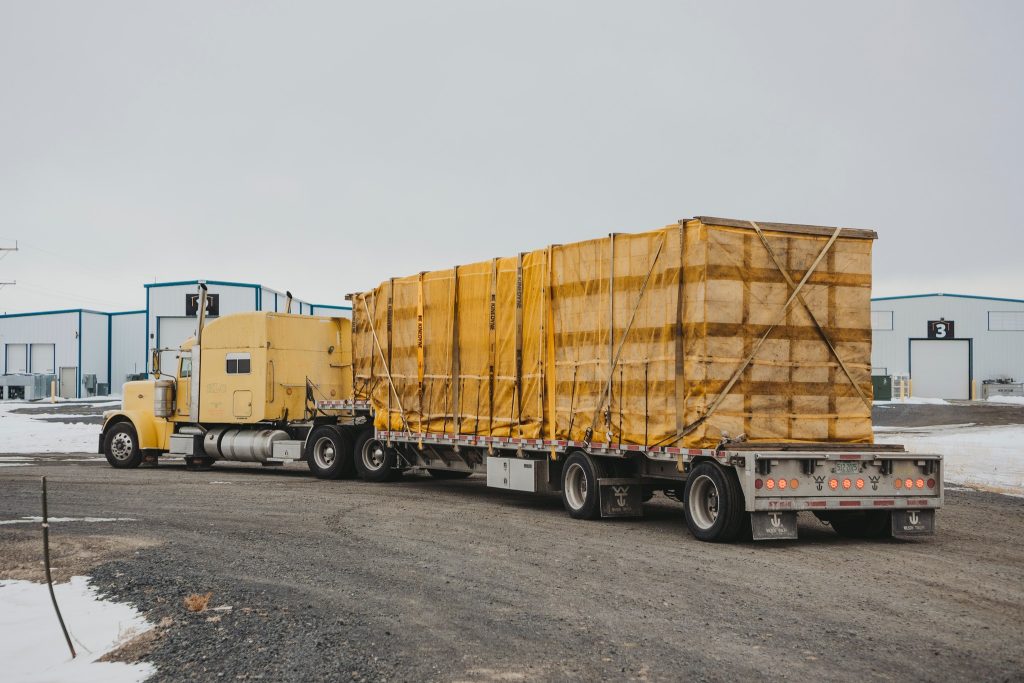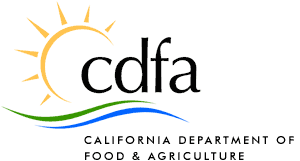
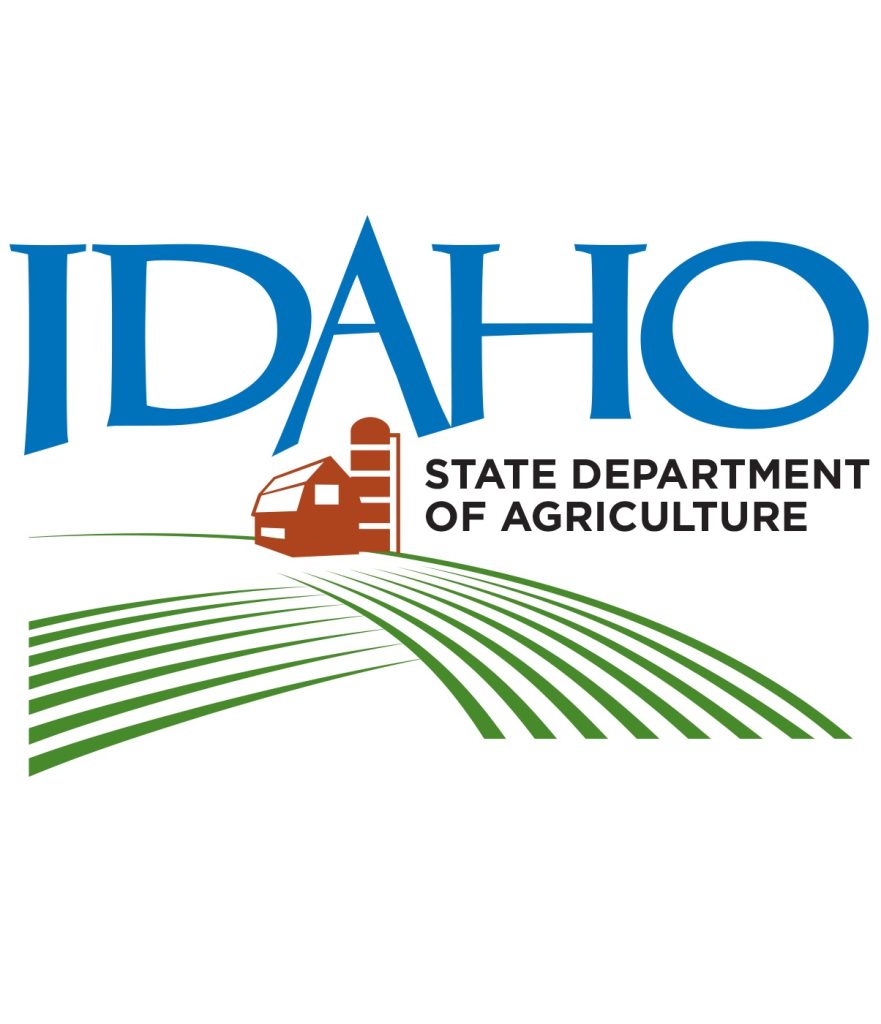
Idaho State Department of Agriculture (ISDA), in conjunction with California Department of Food and Agriculture (CDFA), have a Pre-Shipment Inspection program for honeybees. This program is in preparation for honeybees moving into California for crop pollination services. Each year ISDA will schedule inspections in early December with qualifying beekeepers. Bees and equipment that are inspected at the inspection time and successfully pass compliance protocol are certified and allow expedited entry into California, bypassing time-consuming inspections at the California border check stations.
This is a form for beekeeper’s that are shipping honeybees into Idaho for Winter Storage
Participant/Shipper Compliance Agreement Form to Ship Honeybees into California for Pollination.
Samples of the Inspection Certificate and the Shipment Tracking Log for the Apiary Pre-Shipment Inspection Program.
MEMORANDUM
From: Idaho State Department of Agriculture (ISDA)
To: Idaho Beekeepers
Date: November 2, 2023
RE: California Apiary Pre-Shipment Inspection Program
Idaho State Department of Agriculture (ISDA), in conjunction with California Department of Food and Agriculture (CDFA), is scheduling Pre-Shipment Inspections of honeybees in preparation for movement to California for crop pollination services. These inspections will be scheduled in early December. Bees and equipment that are inspected at this time and successfully pass compliance protocol are certified to allow expedited entry into California, bypassing time-consuming inspections at the California border check stations.
To participate in the pre-shipment inspection program, you must fill out the attached Idaho-California Apiary Pre-Inspection form and send back to Idaho State Department of Agriculture by no later than November 20, 2023.
Please mail form back to:
Idaho State Department of Agriculture
Division of Plant Industries
Attn: Darcy Heckathorne
2270 Old Penitentiary Road
Boise, Idaho 83712
Participant/Shipper Compliance Agreement
Apiary Pre-Shipment Inspection Program
November 2024
Preparation of Staging Area
- The participant/shipper shall notify the Idaho State Department of Agriculture (ISDA) of the locations of inspection sites and approximate number of colonies to be inspected by: Monday, November 18, 2024
- Participant/shipper is to complete a Compliance Agreement for each region/city and list all inspection sites of colonies and the colony count per inspection site for each region/city of the participating state.
- Participant/shipper is to complete one Compliance Agreement, per location (inspection site) of colonies and list the colony count.
- Note: Region/city are determined by the participating state official. If the participant/shipper has multiple shipping locations, they must confirm with the participating state on the number of compliance agreements needed.
- Example A: 1 Participant/Shipper with 1 inspection site, would only need to complete 1 Compliance Agreement.
- Example B: 1 Participant/Shipper with 5 inspection sites can complete 1 Compliance Agreement and list the inspection locations and colony count for each location. (Per the region/city that are determined by the participating state official.)
- Note: Region/city are determined by the participating state official. If the participant/shipper has multiple shipping locations, they must confirm with the participating state on the number of compliance agreements needed.
- Staging area shall consist of a surface containing heavy plastic, concrete, asphalt, gravel, or compacted dirt free of vegetation. Surface must extend at least 10 feet beyond the colonies in each direction.
- Note: If staging area is in a field, the vegetation shall be mowed to no more than 2 inch in height from the ground and with a minimum of 10 feet around the colonies or at the discretion of the certifying official depending on the pest risk.
- Inspection sites must be free of active insect infestations and noxious weeds as defined in Title 3, Section 4500 of the California Code or Regulations that may infest colonies or be loaded with colonies or pallets for the shipment.
- All colonies to be certified shall be placed in staging areas and arranged in a manner to allow the certifying official to inspect the exterior of all hives and associated pallets.
- The certifying official shall have enough room to bend over and turn around during the inspection.
- After inspection, certified colonies shall remain in the staging area until shipped directly to California unless authorized by CDFA & ISDA Once the colonies have been inspected, they cannot move to an indoor storage facility, another staging area or to another state for storage.
- Note: Certified colonies moved to alternate sites and states without authorization will be disqualified from this program.
- At the certifying official’s discretion, colonies placed in staging areas that are infested with insect or noxious weed infestations, or that do not meet the guidelines listed above may be disqualified from certification for this program.
- Origin inspection of colonies and staging area shall take place no more than: thirty (30) days for outside storage, and sixty (60) days for indoor storage, prior to the colonies being shipped to California.
Cleaning and Preparation of Colonies Prior to Inspection
- The participant/shipper shall clean (High-pressure wash, sweep, brush, air blow, etc.) all the exterior of all colonies, pallets, and other beekeeping equipment to be certified under this program. The cleaning manner shall remove all soil, plant material, rotting wood, and other debris capable of harboring noxious weeds or live insects before placing them in the staging area for inspection with CDFA & ISDA.
- After cleaning, the participant/shipper will visually inspect the exterior of all colonies, pallets, and other beekeeping equipment to be certified for live insects (other than honeybees) and noxious weeds.
- If live insects (other than honeybees) and noxious weeds are found, the participant/shipper will re-clean the exterior of all colonies, pallets, and other beekeeping equipment.
- If live insects (other than honeybees) and noxious weeds are still found, the participant/shipper will remove the infested colonies, pallets, and other beekeeping equipment from the inspection area.
- If live insects or any plant material are found by the participant/shipper or certifying official, the infestation must be removed, or the infested colonies must be segregated from the colonies to be certified so not to infest pest-free colonies.
Shipping to counties that will not accept Small Hive Beetle (Aethina tumida)
- Participant/shipper shall segregate and identify any colonies destined to a California county that does not accept Small Hive Beetle (SHB). A listing of California county policies regarding SHB may be found at: https://www.cdfa.ca.gov/plant/pollinators/docs/CountySmallHiveBeetlePolicy.pdf
- All hives known to be infested with SHB, shall be stored away from non-infested hives to prevent the spread of SHB.
- For colonies destined to counties that will not accept SHB, the participant/shipper will contact the Idaho State Department of Agriculture for a hive inspection to be performed no more than 60 days before the shipment is to be shipped to California.
- Colonies found infested with SHB by ISDA may only be shipped to counties indicating they will accept SHB under this protocol.
Certificates and Tracking Log
- Participant/shippers shall make photocopies of original certificate issued by the certifying official to accompany each shipment destined to California under this program.
- At the time of shipment, the participant/shipper shall complete Part 2 of the Inspection Certificate (APIP-001). Participants/Shipper must fill out each field:
- Certificate Number (certificate numbers shall be sequential starting at 001) (example: ID2024-TV-L1-001)
- Colonies in this Shipment
- Date of Shipment
- Receiver Phone #
- Receiver Name
- Business Name
- Destination Address, City and Zip code
- Carriers need to complete Part 3 of the Inspection Certificate (APIP-001) prior to arrival at CDFA border station. Carriers should work with the participant to fill out the form as necessary.
- Certificates not completed may delay the process at a CDFA border station
- The participant/shipper shall complete the Shipment Tracking log (APIP-002) for each certificate issued. Participants must fill out each field:
- Certificate Number
- Shipment Date
- Colonies in Shipment
- Remaining Certified Colonies
- After all certified colonies have been shipped to California, the participant/shipper shall email all Shipment Tracking logs (APIP-002) to ISDA via email, fax, or regular mail
- Email: (Treasure Valley) TVPyto@isda.idaho.gov; (Twin Falls) TFPhyto@isda.idaho.gov
- Fax: 208-334-2783
- Mail: ISDA, P.O. Box 7249, Boise, Idaho 83712
- Participant/shipper shall send the completed Shipment Tracking log (APIP-002) within 7 days, after the last shipment is shipped from origin state to the California destination.
Inspection Protocols
Voluntary Apiary Pre-Shipment Inspection Program
November 2024
Idaho State Department of Agriculture (ISDA) Responsibilities:
- Provide a thorough explanation of program requirements to shippers requesting to participate in the program, including the difference between shipping to counties that will accept Small Hive Beetle (SHB) and those that will not, to shippers requesting to participate in the program. Note: A listing of California counties and their policies regarding SHB may be found at: https://www.cdfa.ca.gov/plant/pollinators/docs/CountySmallHiveBeetlePolicy.pdf
- Identify Region/City within the state to determine locations for the number of Compliance Agreement needed.
- Ensure participate/shipper understands the guidelines outlined in the Participant/Shipper Compliance Agreement – Pre-Inspection. (This can be done via onsite training or a zoom training for Q & A)
- Obtain a signed copy of the program compliance agreements from shippers participating in the program.
- Ensure origin inspection of colonies and staging area shall take place no more than: thirty (30) days for outside storage, and sixty (60) days for indoor storage, prior to the colonies being shipped to California.
- Confirm dates of inspections 45 days prior to CDFA staff arriving in Idaho.
- Provide completed schedule of inspections 14 days prior to CDFA staff arriving in Idaho.
- Provide CDFA staff a list of shippers participating, address, and colony count, 14 days prior to CDFA staff’s arrival in Idaho.
- Provide a master list of shippers participating in the program, and copies of all signed compliance agreements, to CDFA staff upon arrival in Idaho.
- Provide a list of ISDA inspectors contact numbers for communication during inspection.
California Department of Food and Agriculture (CDFA) Responsibilities for the pilot years:
- Ensure compliance agreement has been signed by the shipper.
- Inspect all staging areas for active insect infestations and noxious weeds.
- Visually inspect the exterior of a representative sample (approximately 20-25%) of all colonies and pallets to be certified for pests and excessive soil/debris contamination—only colonies on site at the time of inspection will be certified.
- Determine required action or mitigation measures regarding pest finds or excessive soil/debris contamination and communicate to shipper.
- Issue certificates and tracking log for pest-free colonies to shipper. (CDFA will complete first year, and participating state will complete the following years)
Pest Finds:
- If active insect infestations or noxious weeds are found in the staging area and, in the opinion of the certifying official, the pests are likely to infest the colonies or be loaded with colonies for shipment, the colonies in the staging area will not be eligible for certification under this program unless the pest risk is mitigated, or the colonies are moved to and alternate pest-free staging area.
- If pests are found on colonies, the colonies and pallets must be physically separated, and safeguarding measures must be implemented to safeguard adjacent colonies from contamination. Pest-infested colonies shall be clearly demarcated indicating they do not qualify for certification under this program.
- If, in the certifying official’s opinion, the infested or contaminated hives can be mitigated through additional cleaning, the infested or contaminated colonies may be cleaned by the participant/shipper and re-inspected for inclusion in this program.
Certificates/Tracking Log:
- After inspection, the certifying official will issue certificates and tracking log for colonies on which no pests were found.
- At the time of inspection, the certifying official will complete Part 1: Compliance Agreement Number
- Compliance Agreement Number (ID2024-TV-L1-001)
- Compliance Agreement Number: (Compliance Agreement Number shall include the state abbreviation, Year, Region/City location, & Inspection #) “see sample on last page”
- Region/City Location
- Total Colonies Certified
- Participant/Shipper Name
- Business Name
- Inspection Site Address, City, & Zip Code
- Storage Type
- Date of Inspection
3. Shippers shall make photocopies of original certificate to accompany each shipment destined to California under this program.
4. At the time of shipment, the Participant/shipper shall complete Part 2:
- Certificate Number
- (certificate numbers shall be the Compliance Agreement Number sequential starting a three-digit number for the shipment number)
- (ID2024-TV-L1-001-001, ID2024-TV-L1-001-002)
- Date of Shipment
- Colonies in this Shipment
- Receivers Phone #
- Receivers Name
- Business Name
- Destination Address, City, and Zip Code
5. Participant/Shipper will instruct the carrier to complete Part 3:
- Carrier Name
- Carrier Unit #
- Carrier Address
- Trailer License # & State
- Carrier Phone #
- Driver License # & State
- Driver DOB
- Driver Name (First, Middle, & Last)
6. The shipper shall complete the tracking log for each certificate issued.
- Certificate Number + Shipment Number
- Shipment Date
- Colonies in Shipment
- Remaining Certified Colonies
- Page Number
7. After all certified colonies have been shipped to California, the shipper shall mail all original tracking logs to ISDA Headquarters for reconciliation.
Definitions:
Certifying Official: CDFA or ISDA staff tasked with inspecting bee colonies and issuing certification under this program.
Pest: Any live or viable organism other than honeybees.
Noxious weed: All weeds listed in Title 3, Section 4500 of the California Code or Regulations
Staging area: Site where bees are inspected and kept after certification until loaded and shipped to California.
Compliance Agreement Number:
- Compliance Agreement Number: (Compliance Agreement Number shall include the state abbreviation, Year, Region/City location, & Inspection)
- Sample ID2024-TV-L1-001
